On 3 June 2021, the G7 Future of the Seas and Oceans Initiative EU Coordination Centre, the All-Atlantic Ocean Research Alliance (AANChOR), H2020 projects Blue-Cloud, iAtlantic and AtlantECO joined forces to host a workshop entitled ‘Towards an All-Atlantic Data Space for the Ocean’. The event provided an arena for international initiatives to gather and discuss how to strengthen the integration, coordination, harmonisation of information and data sharing across the Atlantic. This was also an occasion to demonstrate available tools and present training opportunities, open-source marine data services and infrastructures and the latest open science ‘blue cloud’ technologies working to make data free, accessible, interoperable and reusable (FAIR). The workshop was organised as an official side-event to the All-Atlantic 2021 R&I for a Sustainable Ocean Ministerial High-Level and Stakeholders Conference that took place from 2 to 4 June.
Data interoperability and alignment of data management practices is the essential foundation for an All-Atlantic data space.
Fabienne Jacques from the European Commission’s Directorate-General for Defence, Industry and Space (DEFIS), opened the event, highlighting the importance of collecting and sharing ocean data at a global level, and at the same time exploiting digital infrastructures. Fabienne emphasised that sharing ocean data is not new but that we need to be innovative in integrating worldwide existing initiatives like the EU’s Copernicus Marine Service and EMODnet, as well as create tools, standards and policies to drive global sharing of ocean data and information.
The workshop consisted of two main panel discussions with speakers from both the international and European ocean data landscape, including the EU H2020 project Blue-Cloud, European Marine Observation and Data Network (EMODnet), Mercator Ocean International, the EU Copernicus Marine Service, WEKEO DIAS Cloud Platform, and the Helmholtz Centre for Ocean Research Kiel (GEOMAR).The first panel included contributors and regional marine data services operating across the Atlantic who discussed the existing capability, and how to collaborate and move towards truly FAIR data services. The second, involved a moderated discussion on the priority actions required to achieve the goals of an All-Atlantic Data Space.
Some key points in the discussions included targeting new data sources from less classical sources (such as industry, citizen scientists, IoT and AI and students) via the development of use cases and avoiding duplication of efforts. A systematic approach is needed to address standards and interoperability concerns so that data collected from anywhere can be downloaded, used and tracked. Another important point raised is the need to identify data sharing programmes and infrastructures in other countries to involve national scientific communities to monitor progress towards data sharing. Usability is key and for that acknowledgement and incentives are needed for capacity building and collaborating with other regions. Ocean observing should be the norm and policy drivers are needed to coordinate efforts towards the objectives of the UN Decade of Ocean Science for Sustainable Development. Looking into the future, the youth need to be engaged so that the next generation of data managers will follow suite in changing the global approach to data sharing. Closely linked to this, is the need to align human capacity development through shared curricula on ocean data management. Last, data users need to be put at the centre of this narrative, whether they are scientists or end-users, as they ultimately determine the underlying need for ocean data.
The EU Office of the G7 Future of the Seas and Oceans Initiative (G7 FSOI) Coordination Centre, led by the EU coordinator supported by EU4OceanObs, will continue to work closely with key partners and initiatives to enhance the collection and sharing of data across the Atlantic. This activity falls under the G7 FSOI priority action area to improve global ocean data sharing infrastructure to address the challenges of physical, chemical and biological data.
To watch a recording of the event and for more information, click here.
Useful links and channels for data sharing
European
- EMODnet web services and EMODnet Data Ingestion
- Copernicus Marine Service
- WEKEO Cloud Platform (Copernicus DIAS reference service for environmental data)
- iAtlantic GeoNode
- FAIRsFAIR – Fostering Fair Data Practices in Europe
- Data Publisher for Earth & Environmental Science (PANGEA)
International
- International Oceanographic Data and Information Exchange (IODE) of IOC of UNESCO
- Marine Information Management System of South Africa (MIMS)
- Brazilian Marine Biodiversity Database (BaMBA)
- Integrated Marine Biosphere Research (IMBeR)
- NOAA’s World Ocean Database (WOD)
- Fisheries and Resources Monitoring System (FIRMS)





